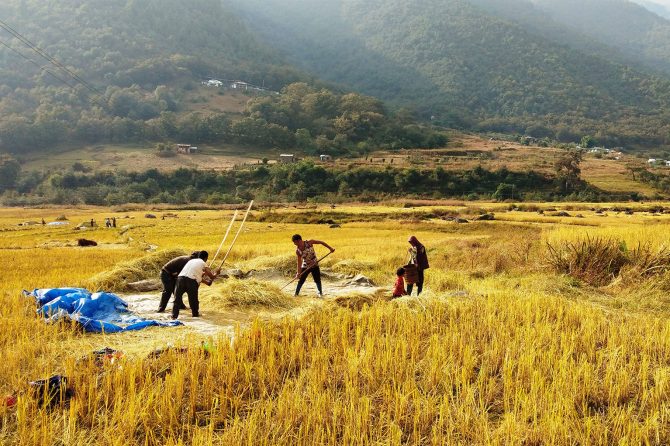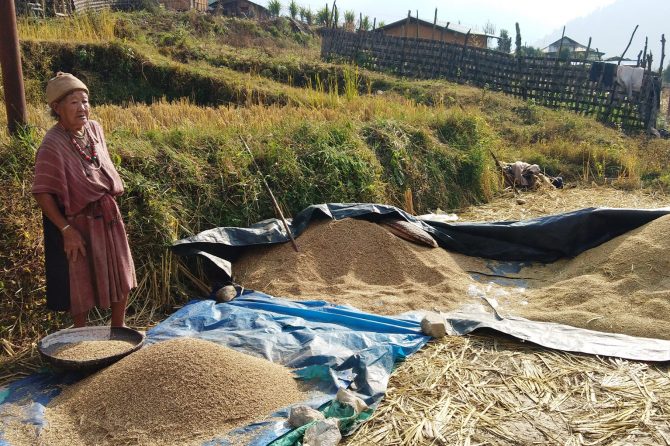SDM Project: Sustainable Intensification of Ecosystem Services for Conservation of Production Agriscape and Biodiversity in Community Conserved Forests of Western Arunachal Pradesh, India
01.02.2023
SUBMITTED ORGANISATION
South Asian Forum for Environment
PARTNER ORGANISATIONS
National bank for Agriculture & Rural Development, (NABARD) Govt. of India
Indian Council of Agricultural Research (ICAR), Govt. of India (KVK Dirang Arunachal)
DATE OF SUBMISSION
31/01/2022
REGION
Asia
COUNTRY
India
KEYWORDS
Indigenous paddy, Highland Agriculture, Black-necked crane, Tourism, Livelihood, habitat restoration
FOCAL POINT
Dr. Dipayan Dey, Chair (Research & Planning)
LINK
Abstract
The proposed intervention aims to achieve sustainable intensification of ecosystem services as a measure to conserve biodiversity in the production agriscape (agricultural landscape) of community conserved forests in Arunachal Pradesh, India thereby assuring food security and better livelihood of the agrarian indigenous communities of eastern Himalayas. The area has diverse agro-climatic landscapes and sustained immigration, with enriched agro-biodiversity nurtured in traditional farming. The core agriscape encompasses community reserve forests with varied ecosystems inhabited by five tribes with diverse linguistic and religious affinities practicing traditional slash-burn agriculture where fire re-shapes the production agriscape. Shifting of terraced fields to higher altitudes by slash-burn to escape warmer temperatures or clearing valleys has been nonviable adaptations and it radically modified ecosystem services of the production agriscape, as alterations in sowing season can only be done within a narrow window of time. Today, this demands adaptive framework planning for conserving the production agriscape which this proposal attempts to address by sustainable intensification of ecosystem services. The overarching objectives therefore intends to map the changing trends of indigenous farming practices on a geospatial platform to identify the drivers of change and as well assess its direct impact on local agro-biodiversity & ecosystem services and its tandem effects on local livelihood and wildlife habitat to prepare a place-based habitat conservation framework for adaptive agriscape management through demonstrated action-research and participatory planning towards sustainable intensification of ecosystem services



